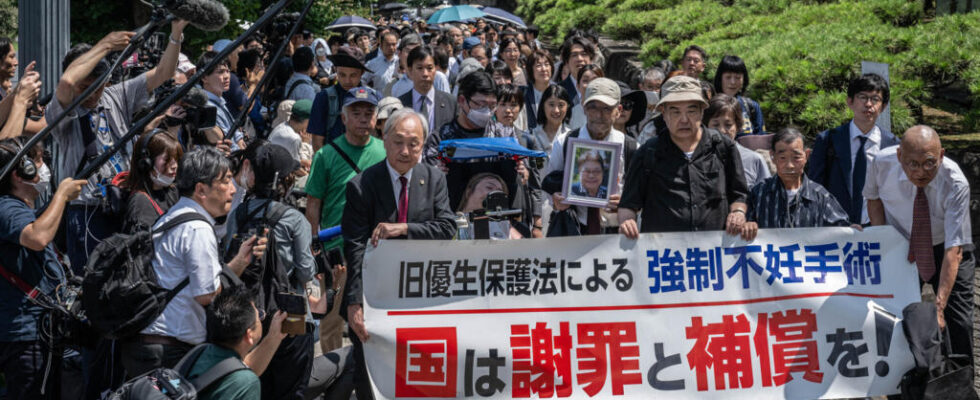In Japan, the Supreme Court ruled on Wednesday, July 3, unconstitutional the now-defunct law that led to the forced sterilization of thousands of people in the country. This is a major victory for the victims.
2 min
According to local media, the Supreme Court of Japan issued its decision on July 3, declaring the law leading to forced sterilizations unconstitutional. The country’s highest court also ruled that a 20-year statute of limitations for victims’ compensation claims could not be applied. In addition, the justices split on the issue of the statute of limitations, invalidating for some the claims for prosecution.
The decision comes after local court rulings, most of which have acknowledged that the law violates Japan’s constitution.
The Japanese government acknowledges that about 16,500 people were sterilized under the eugenics law, which came into effect in Japan in 1948. The number of operations subsequently declined, reaching a low of 100 in the 1980s and 1990s before the law was repealed in 1996.
A eugenics law
During this period, the law allowed doctors to sterilize people with hereditary intellectual disabilities, in order to ” to prevent the generation of poor quality offspring ” According to Japanese authorities, an additional 8,500 people were sterilized with their consent, although lawyers say these cases were likely “ forced de facto ” because of the pressures they are under.
This dark period in Japanese history was brought back into the spotlight when a woman in her 60s sued the government in 2018 over an operation she underwent when she was 15, setting the stage for similar lawsuits.
The Japanese government has apologized. With all my heart “, following theadoption in 2019 of a law providing for compensation a lump sum of 3.2 million yen (about 18,500 euros today) per victim. But the survivors believe that this sum is too low, compared to the seriousness of their suffering, and have taken their fight to court.
Read alsoJapan: Government dating app to boost birth rate
